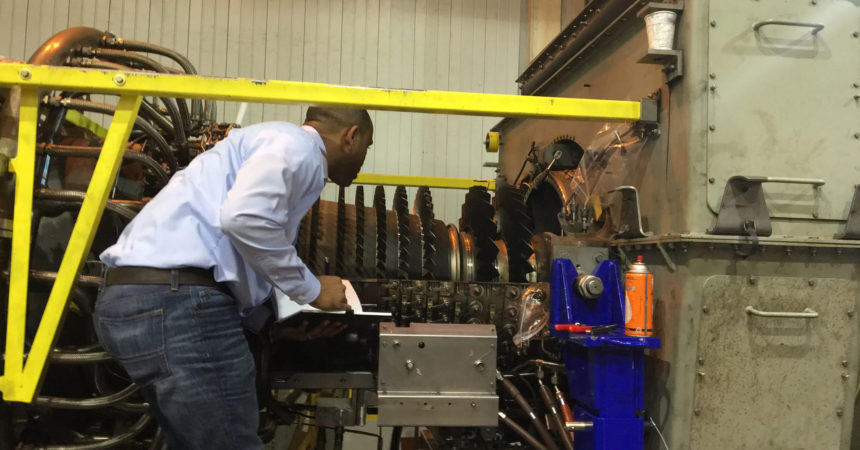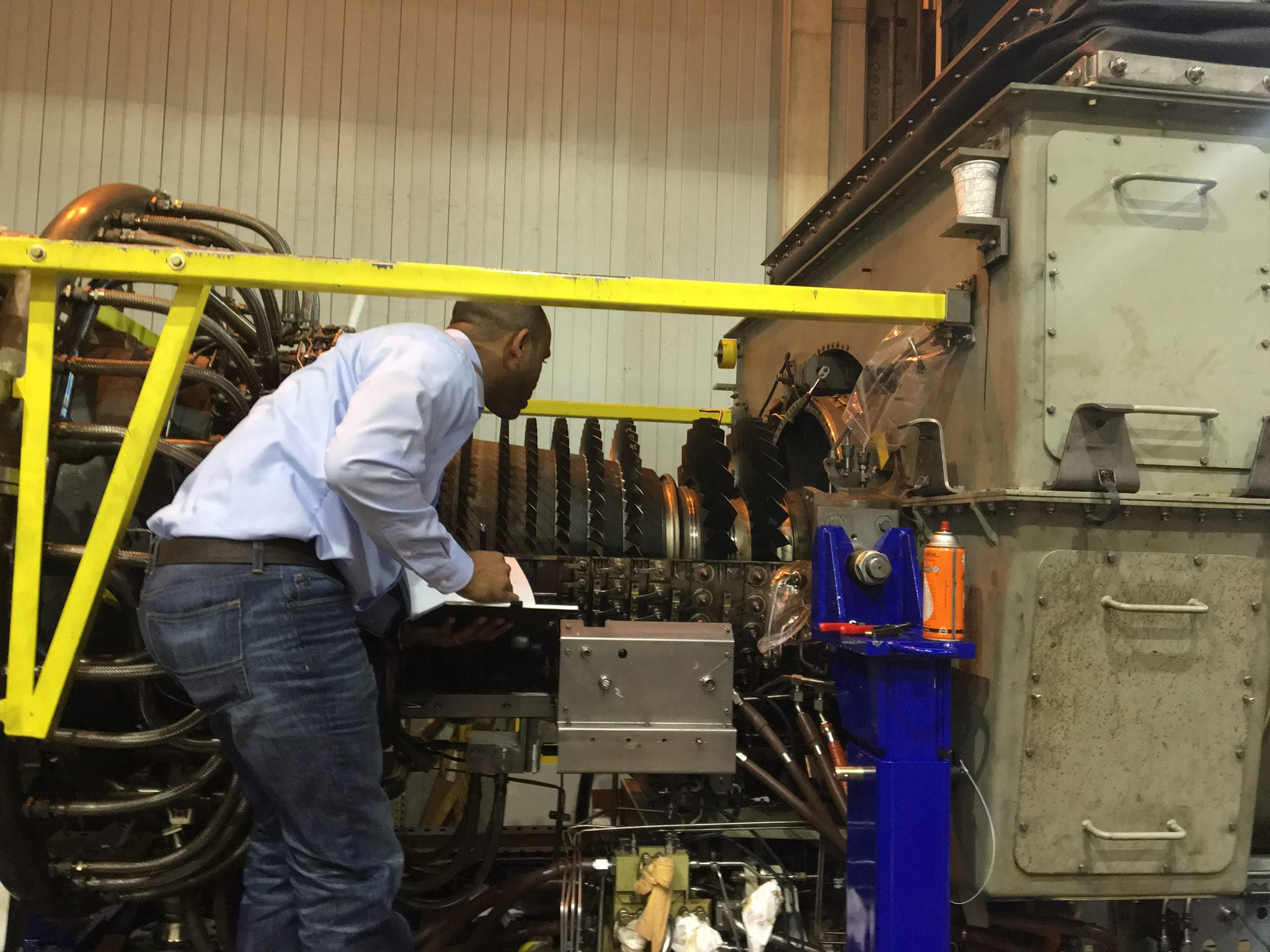
Tallahassee’s Reamonn Soto creates a heat sensor that’s saving millions in aerospace industry

Inspecting the effectiveness of his heat sensor is part of the routine for Reamonn Soto.
Photo special to the Outlook
By St. Clair Murraine
Outlook staff writer
Reamonn Soto’s first sighting of a shuttle launch as a seventh-grader was nothing like he’d ever seen.
“That event inspired me to want,” said Soto, now 33 year old.
He just didn’t know that witnessing the launching would be an inspiration for his invention that is changing multiple industries that use huge motors. Today he is president of Sensatek Propulsion Technology, a two-year old Tallahassee-based company that also has a Daytona Beach location. The company produces a heat sensor that’s being used in aviation and aerospace as well as gas and oil manufacturing.
His device is projected to save companies that use big engines millions of dollars each year. The sensor saves on replacement cost as it indicates when repairs are needed.
Soto has garnered a lengthy list of accolades for his technological breakthrough, including a first place in a competition put on by the Department of Energy’s Office of Energy Efficiency and Renewable Energy.
Soto began to turn heads when he participated in a tech competition. Mac Langston, owner of Flight Line, Inc., was one of the judges.
“He had an idea that he truly was going to have go through and commercialize it,” Langston said. “That interested me quite a bit.”
“He believed what the product would do. He saw the benefits of it.”
Soon major companies in aerospace and others began believing in what the man who grew up in government-subsidized housing had created. His client list includes Siemens, Pratt Whitney and Rolls-Royce.
“For him to take a product and go to market and persevere like he has done is extremely admirable,” Langston said. “He had stayed in there for the time it takes to get it to market. He just had that tenacity to hang in.”
What Soto is experiencing as owner of a multi-million dollar company in an industry that generates billions annually is far removed from the days when struggled academically. Hearing teachers tell him he didn’t have the drive to succeed was the norm.
“I had no intentions, really,” is how he described his desire for college before graduating from Leon High School. His participation in the JROTC program at Leon put him on a path that bolstered his self-confidence, though.
He later started taking classes at Lively Technical College. He followed that by taking two classes at Tallahassee Community College, including an English course to improve his writing skills.
A transformation began.
“I took that one class and I took it very serious,” said Soto, who had repeated a few classes in high school. “I had a real good teacher who showed me the mechanics and actually inspired me to be a writer.”
He finished with a 4.0 GPA.
All the time, Soto was tinkering with ways to build an airplane, turning his mother’s living room into a lab. By the time he left TCC he was challenging himself. He figured he would focus on physics.
“The lights just came on,” he said.
His next stop was FAMU, where he earned Bachelor’s of Science in Physics, with a certificate for Global Security in International Affairs. He went even further, earning a certificate of Business Research from FSU College of Business. Later he would use all he’d leaned in physics at Embry-Riddle Aeronautical University. He graduated with a Masters of Aeronautical Sciences in Aviation and Aerospace Management degree.
In 2004, Soto joined the Marine Corps Reserves, a move that was inspired by his involvement in the JROTC while was a student at Leon. He spent eight years with the Marines.
The years in the JROTC had prepared him for what he would face in the Marine Corps, he said. His instructor, retired Gunnery Sergeant Anthony Reaves, recalled that Soto had a drive that got him from cadet private to senior cadet.
“He was always accountable for his action and he delegated things to get done,” Reaves said, “but overall he knew he was responsible for getting it done.”
Today he takes the same approach to develop his staff, hiring personnel that could lead, Soto said.
“They are going to make mistakes but I have to give them that opportunity and give them enough wiggle room to be able to learn from those mistakes; just like I was afraid of learning,” he said. “If your folks are afraid of making decisions, they are going to operate always from a place of weakness.
“I want everyone on the team to operate from a place of strength and I have to empower them to do that. I allow them to make decisions. I allow them to lead.”







